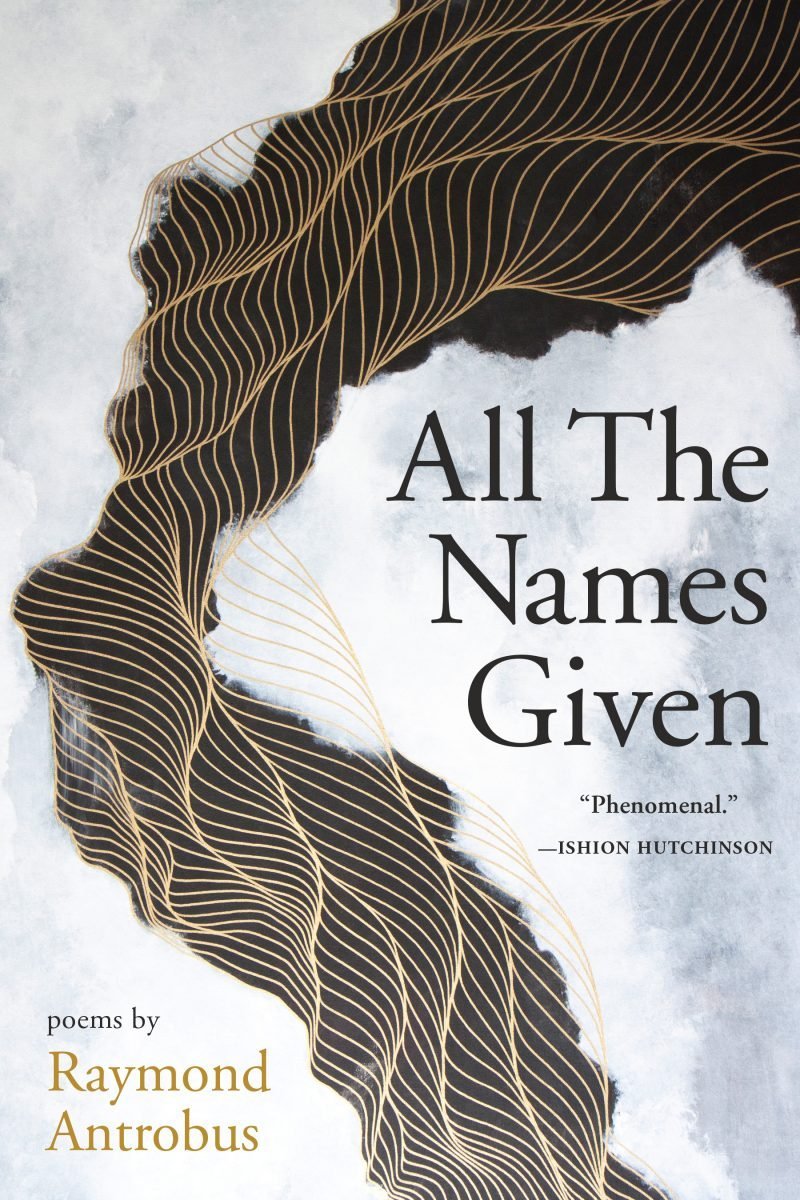All The Names Given
Raymond Antrobus
Reviewed by Shalini Rana
Bold and tender, Raymond Antrobus’s poetry collection All The Names Given traces the speaker’s ancestry and places them in a family history filled with dreams, memory, and legacies tied to colonialism. These voice and narrative-driven poems bear witness to the gaps in language, speaking, and understanding—moving seamlessly through new poetic and visual forms in the pursuit of bridging and speaking to these gaps.
In our current times, when accessibility issues still prevail and communities begin to implement captioning, Antrobus redefines sound to focus on the experience of deafness. With poems and interludes written in captions that capture unexpected sounds, such as the “[sound of self divided],” he brings readers on a journey to interrogate the infinite possibilities of what sound can hold, drawing on the work of Deaf sound artist Christine Sun Kim, which inspired Antrobus’s use of captions. Language and white space play together deftly in these captioned sections, creating the necessary soundscape of silence and noise that emanates throughout these poems. And here, the poem becomes a space in which the speaker reckons with mythology, brutality, mirrors, mothers, fathers, surnames, and intimacy. Language, or the shaping of language into experience, is then the vehicle that transports us through this reckoning. By the end of the collection, we journey with the speaker into silence, something shared and transformed into a possible place of empathy. If Antrobus claims that there are “enigmas in my deafness,” then these poems feel like a palpable answering.

